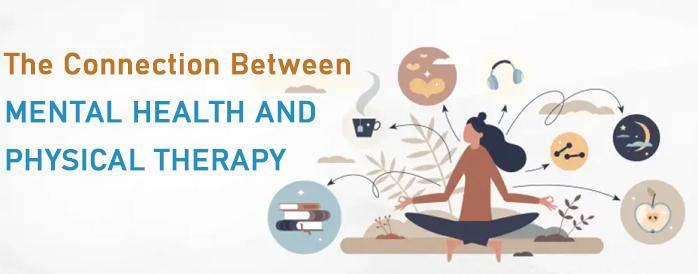The Connection Between Mental Health and Physical Therapy

In recent years, the relationship between mental health and physical therapy has gained significant attention. While physical therapy is traditionally associated with treating musculoskeletal issues, its impact on mental well-being is profound. Many individuals undergoing physical rehabilitation also experience improvements in their mental health, highlighting the intricate connection between the mind and body.
How Physical Therapy Supports Mental Health
- Pain Management and Stress Reduction Chronic pain is not just a physical ailment; it can also lead to anxiety, depression, and emotional distress. Physical therapy helps alleviate pain through targeted exercises, manual therapy, and mobility improvement, which in turn reduces stress and enhances overall mental well-being.
- Endorphin Release and Mood Enhancement Exercise is known to trigger the release of endorphins, the body’s natural “feel-good” hormones. Physical therapy incorporates movement and exercise that can help combat symptoms of depression and anxiety by promoting relaxation and a sense of accomplishment.
- Improved Sleep Patterns Sleep disorders are often linked to both physical pain and mental health challenges. Through exercises that reduce pain and improve circulation, physical therapy can contribute to better sleep, which is crucial for emotional regulation and cognitive function.
- Boosted Self-Esteem and Confidence Recovering from an injury or improving physical function through therapy can enhance self-confidence. As individuals regain mobility and independence, they often experience a positive shift in self-perception, leading to improved mental health.
- Mind-Body Connection Techniques such as deep breathing, mindfulness-based movement, and relaxation exercises incorporated into physical therapy can help individuals manage stress and cultivate a stronger mind-body connection, leading to overall emotional resilience.
Physical Therapy for Mental Health Conditions
Beyond aiding those with physical injuries, physical therapy can be beneficial for individuals suffering from conditions such as:
● Depression – Encouraging movement and social interaction during therapy sessions can help alleviate symptoms.
● Anxiety Disorders – Structured exercises can serve as a healthy coping mechanism to manage anxious thoughts and physical symptoms.
● Post-Traumatic Stress Disorder (PTSD) – Techniques like guided movement and breath control can assist in emotional regulation.
● Chronic Fatigue Syndrome – Gentle physical activity can help manage fatigue while improving overall physical and mental health.
The Role of Physical Therapists in Holistic Health
Physical therapists do more than just guide patients through exercises. They play an essential role in holistic wellness by providing emotional support, encouragement, and motivation. Many therapists work alongside mental health professionals to create integrated treatment plans that address both physical and emotional needs.
Conclusion
The connection between mental health and physical therapy underscores the importance of a holistic approach to well-being. By addressing both physical and psychological aspects, individuals can achieve greater overall health. If you’re struggling with chronic pain, stress, or mental health concerns, consider incorporating physical therapy into your wellness routine it may offer the relief and balance you need for a healthier mind and body.